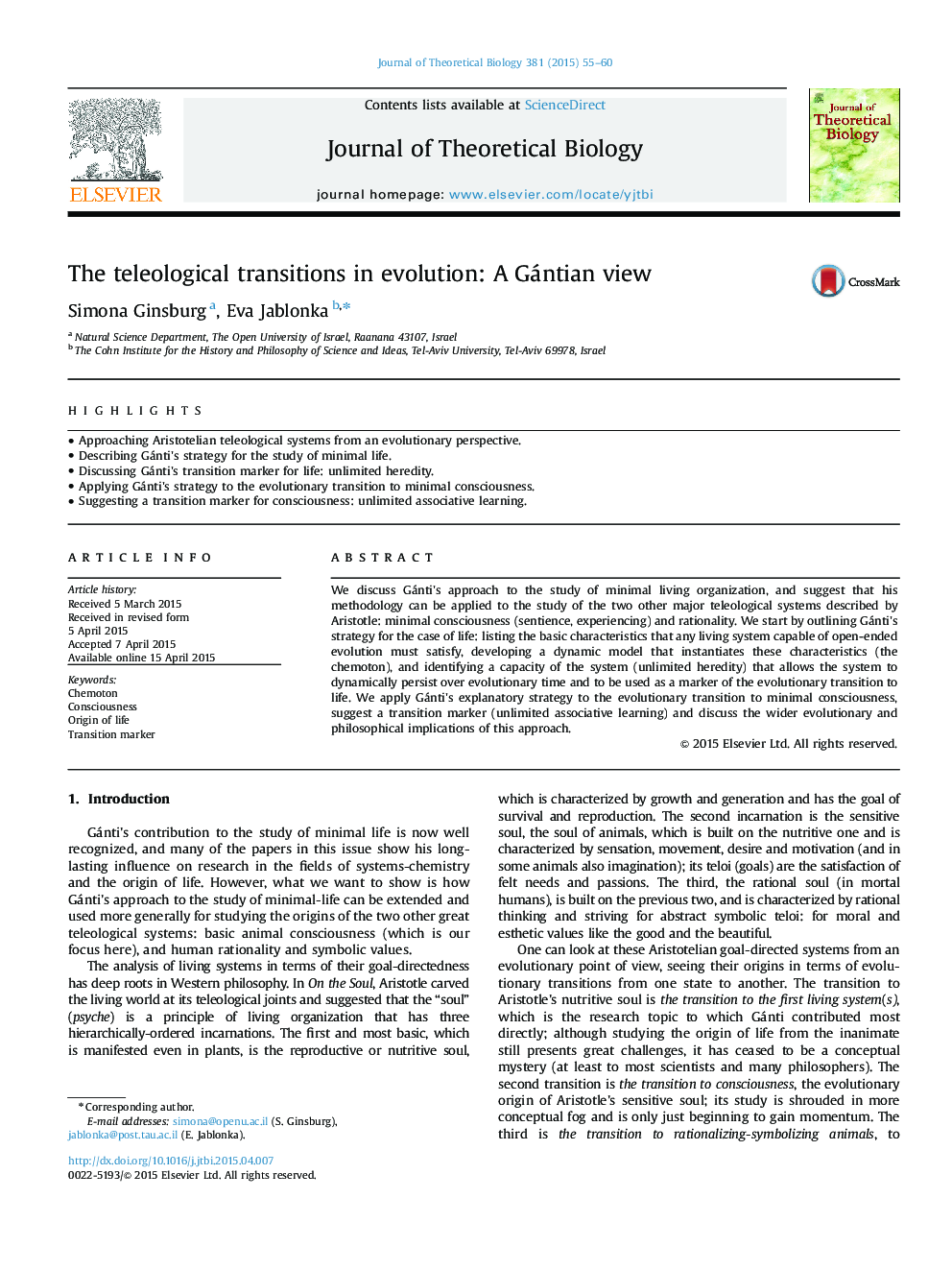| Article ID | Journal | Published Year | Pages | File Type |
|---|---|---|---|---|
| 4496014 | Journal of Theoretical Biology | 2015 | 6 Pages |
•Approaching Aristotelian teleological systems from an evolutionary perspective.•Describing Gánti׳s strategy for the study of minimal life.•Discussing Gánti׳s transition marker for life: unlimited heredity.•Applying Gánti׳s strategy to the evolutionary transition to minimal consciousness.•Suggesting a transition marker for consciousness: unlimited associative learning.
We discuss Gánti׳s approach to the study of minimal living organization, and suggest that his methodology can be applied to the study of the two other major teleological systems described by Aristotle: minimal consciousness (sentience, experiencing) and rationality. We start by outlining Gánti׳s strategy for the case of life: listing the basic characteristics that any living system capable of open-ended evolution must satisfy, developing a dynamic model that instantiates these characteristics (the chemoton), and identifying a capacity of the system (unlimited heredity) that allows the system to dynamically persist over evolutionary time and to be used as a marker of the evolutionary transition to life. We apply Gánti׳s explanatory strategy to the evolutionary transition to minimal consciousness, suggest a transition marker (unlimited associative learning) and discuss the wider evolutionary and philosophical implications of this approach.
